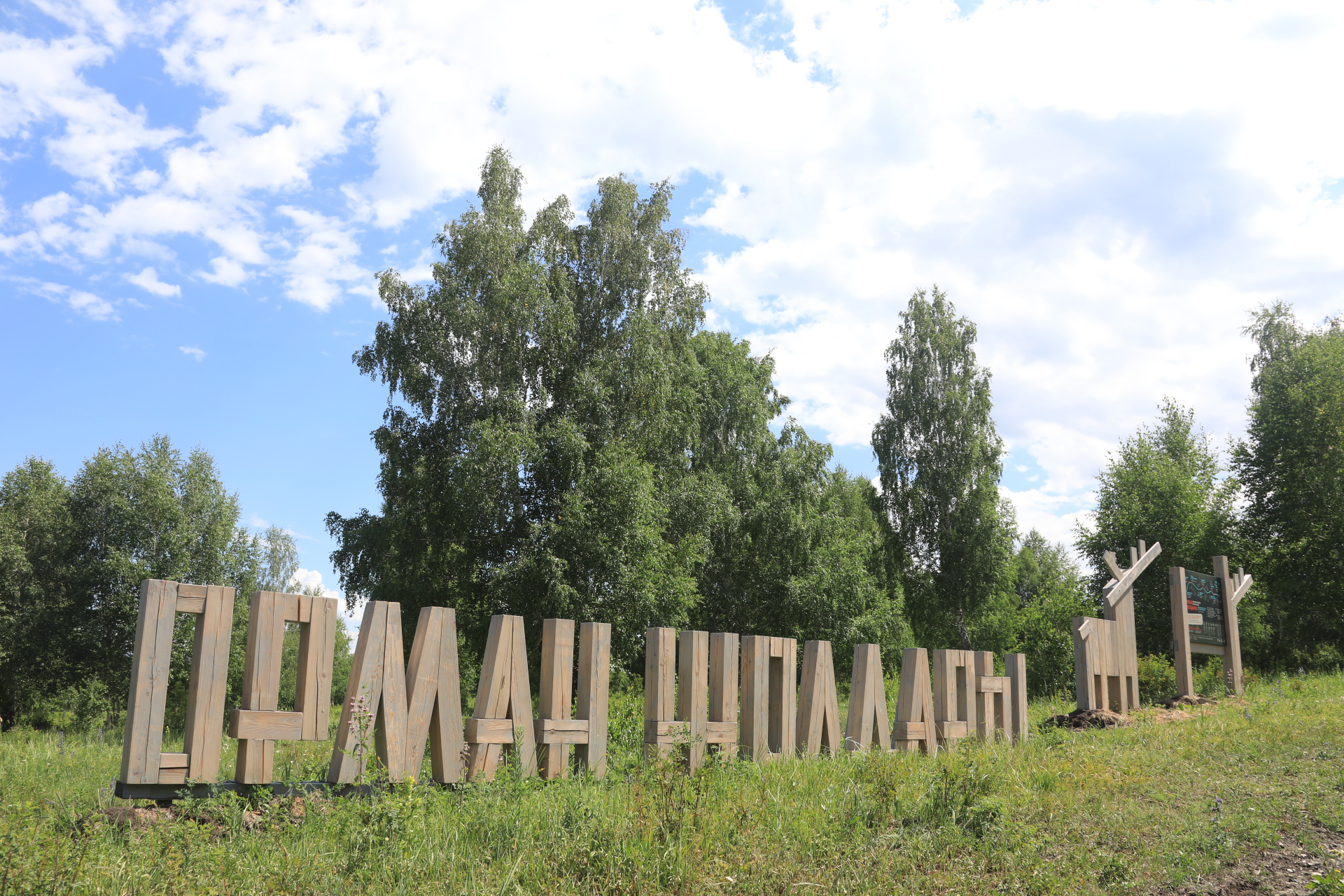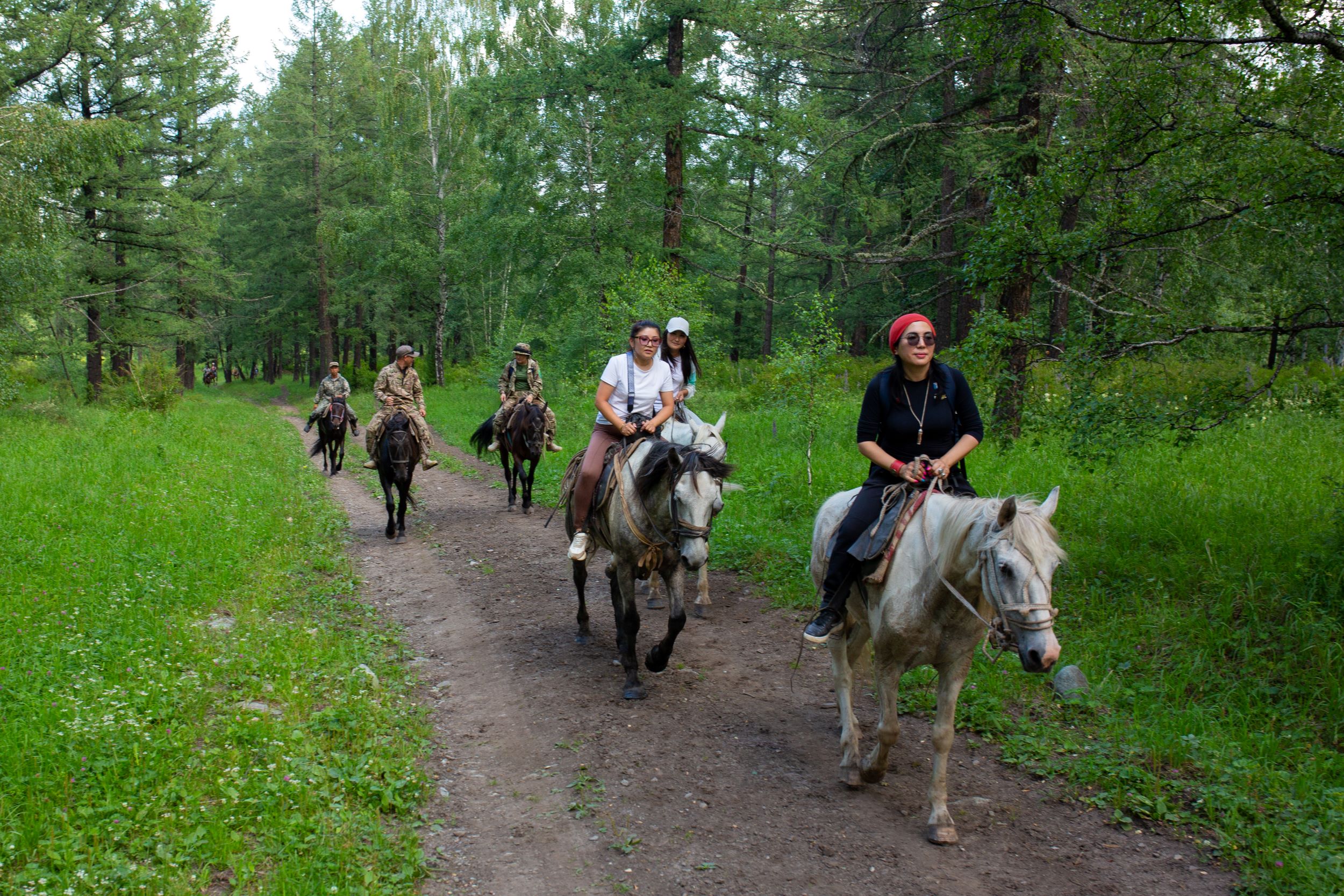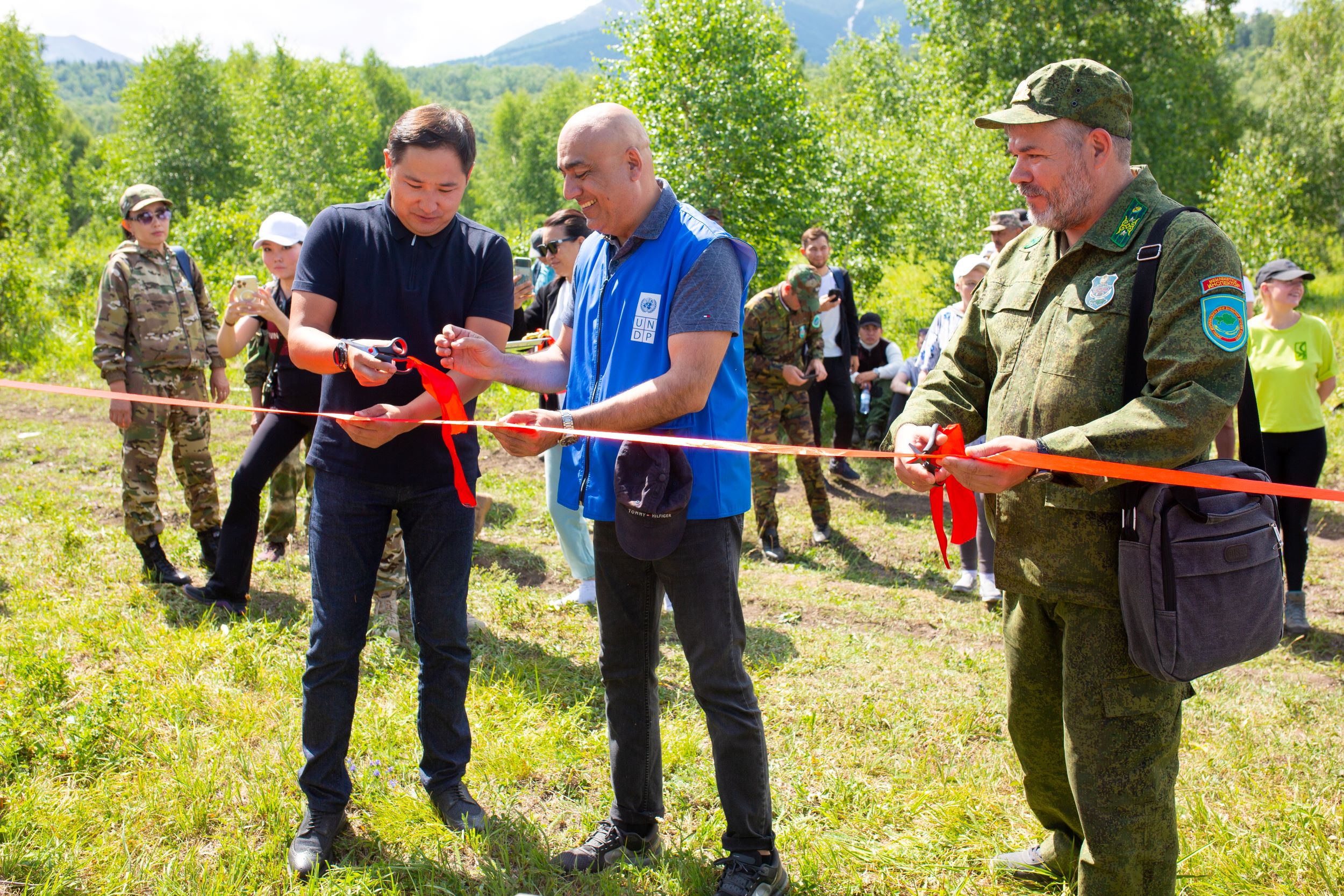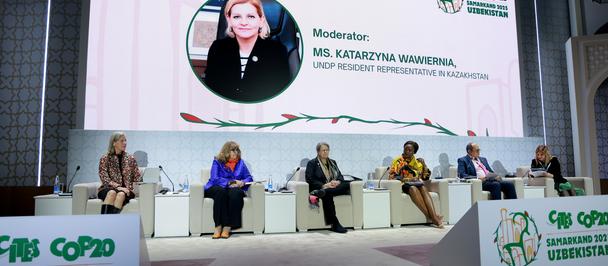An upgraded tourist route in Katon-Karagay National Park opened with UNDP support
July 21, 2023

The Orman Zholdary ecotrail has an entrance gates, art objects, five thematic placards (stands) navigation signs and signs with information about the biodiversity of the National Park
With the support of the United Nations Development Programme (UNDP), an updated tourist route "Orman Zholdary" was opened in Katon-Karagay State National Nature Park, one of the largest parks in Kazakhstan. "Orman Zholdary" is a conceptual route where every visitor is a guest of the forest. The forest is presented as a versatile living mechanism with its own history, rules, and philosophy of existence, ready to provide a harmonious formula for human life.
In recent years, interest in domestic tourism in Kazakhstan has increased significantly. National parks are especially popular among tourists, and they also play an important role in the development of ecotourism. There are 14 national parks in Kazakhstan. According to the Ministry of Ecology and Natural Resources of the Republic of Kazakhstan (MENR RK), about 2 million tourists visited the country's national parks in 2022, an increase of 25 percent compared to 2021. Due to this high demand in the national parks, in addition to the creation of the necessary tourist infrastructure and the improvement of the legal framework for ecotourism, appropriate education and training of the population is required.
Beautiful sceneries of the East Kazakhstan nature tourist can observe at the Orman Zholdaty upgraded ecotrail
The area of Katon-Karagay National Park is 643,477 ha. Since 2017, Katon-Karagay National Park has been included in the UNESCO World Network of Biosphere Reserves as a Kazakh-Russian transboundary biosphere reserve. On the territory of the national park there are 10 tourist routes and four hiking trails with a total length of over 680 kilometers. In 2022, 7,061 people visited Katon-Karagay National Park.

Aigul Nigmetova, environmental education specialist at Katon-Karagay National park is giving instructions on ecotrail
"East Kazakhstan region is one of the most densely forested regions of our country. The area of the region's forest fund is 2.9 million hectares, of which 1.6 million hectares are covered with forest. Our region is rich in valuable coniferous and deciduous forests, which play a crucial role in climate and water regulation and are home to thousands of plant and animal species. Therefore, protecting the mountain forests of the Altai is a priority, especially as the climate becomes drier each year. The development of ecological routes ensures safety and accessibility to unique corners of nature for visitors to the national park without harming flora and fauna,"said Kairat Meirembekov, Head of the Regional Territorial Inspection of Forestry and Wildlife in East Kazakhstan region.

Participants of the Orman Zholdaty upgraded ecotrail
The Orman Zholdary ecotrail has entrance gates, art objects, five thematic placards (stands) navigation signs and signs with information about the biodiversity of the National Park. The route is more than 20 kilometers long and takes about one to two days on foot and on horseback.
For many years, the United Nations Development Programme has been supporting Kazakhstan in the development of ecological tourism as one of the measures to preserve biodiversity and contribute to the sustainable development of the country's regions. The improvement of tourist routes and trails in natural areas increases the safety of travelers and also enables an even distribution of the recreational load.

Cutting ribbon ceremony by Dildar Kalikan, Sukhrob Khojimatov and Alexandr Skuratov at Orman Zholdaty upgraded ecotrail opening
"Preserving the balance between people and nature for future generations is an essential part in achieving the Sustainable Development Goals for every country. UNDP recognizes the importance and potential of ecotourism to the country's economy and provides systemic support for the development of this industry. Various forms of this support include improving the legal framework for ecotourism, taking into account best practices and international standards, providing expert and methodological assistance, developing ecotourism strategies for protected natural areas (PNAs), upgrading tourist routes and hiking trails, capacity building of PNAs staff, and incentivizing green businesses in the areas adjacent to PNAs,"said Sukhrob Khojimatov, UNDP Deputy Resident Representative in Kazakhstan.

Alexandr Skuratov, Head of the Department of Forest and Protected Natural Territories of the Regional Territorial Inspection of Forestry and Wildlife in East Kazakhstan
Over the past 14 years, eight new PNAs have been established and three existing ones expanded with UNDP support. Particular attention is paid to strengthening logistical facilities and staff capacity building. Under the UNDP project, implemented in partnership with the Government of Kazakhstan and with financial support from the Global Environmental Facility (GEF), the Katon-Karagay National Park received equipment including all-terrain vehicles, radio technical equipment, a small forest firefighting complex, a quadrocopter, a camera and camera traps, and the necessary equipment to observe snow leopards, and etc.
In addition, the project installed three sets of 2-kW wind-solar panels to provide power and communications to remote areas of the park and improve the living conditions of inspection staff. The Katon-Karagay National Park staff regularly participate in seminars on sustainable protected area management, biodiversity monitoring, forest fires, SMM, and other topics.
It is worth mentioning that active socio-economic participation of local communities and their benefit from these activities is one of the basic principles of ecotourism. Thus, special attention is paid to the implementation of an additional environmental education programme in secondary schools, capacity-building of local communities and rural entrepreneurs to start and boost sustainable businesses.

 Locations
Locations








